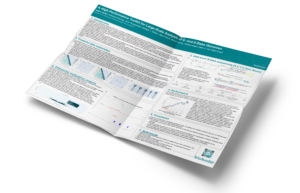Epigenome Wide Association Study (EWAS) is a research method that explores the relationship between epigenetic modifications, like DNA methylation, and various traits or diseases. Our understanding of epigenetics is crucial for unravelling the complex interplay between the environment and gene expression, as epigenetic modifications can regulate gene activity without altering the DNA sequence. Epigenomics research has the potential to significantly contribute to our comprehension of various diseases, from cancer to cardiovascular disease and neurological disorders. By studying epigenetic modifications, we can gain insights into how environmental factors influence gene expression and potentially develop targeted therapies or interventions.
Key Takeaways:
- An Epigenome Wide Association Study investigates the relationship between epigenetic modifications and traits/diseases.
- Epigenetic modifications can regulate gene activity without altering the DNA sequence.
- Epigenomics research can contribute to our understanding of diseases and inform targeted therapies.
- Environmental factors can influence gene expression through epigenetic mechanisms.
- EWAS has the potential to revolutionise personalised medicine and healthcare breakthroughs.
The basics of epigenetics and DNA methylation
Epigenetics refers to modifications to the genome that do not involve changes to the DNA sequence itself but can still influence gene expression. One of the most studied epigenetic modifications is DNA methylation, which involves the addition of methyl groups to specific regions of the DNA molecule. DNA methylation often occurs in regions called CpG islands, which are rich in cytosine and guanine nucleotides. The addition of methyl groups to these CpG sites can lead to gene silencing and reduced gene expression. DNA methylation is catalysed by enzymes called DNA methyltransferases.
The patterns of DNA methylation can be inherited through cell division and can also be influenced by various environmental factors. Understanding the basics of epigenetics and DNA methylation is crucial for unravelling the complex mechanisms that regulate gene expression and contribute to the development of various traits and diseases.
The role of DNA methylation in gene regulation
DNA methylation plays a critical role in gene regulation by influencing the accessibility of the DNA to transcription factors and other regulatory proteins. When methyl groups are added to certain CpG sites within a gene promoter region, it can prevent the binding of transcription factors, thereby inhibiting gene expression. Conversely, the absence of methylation in these regions allows for gene activation and expression. The dynamic nature of DNA methylation, with patterns that can change throughout development, differentiation, or in response to external cues, adds another layer of complexity to gene regulation and cellular function.
Furthermore, DNA methylation patterns can vary across different tissues and cell types. This tissue-specificity adds another level of regulation to gene expression and contributes to the diversity of cell types and functions in multicellular organisms. Understanding how DNA methylation and epigenetic modifications regulate gene expression is crucial for comprehending the intricate mechanisms that drive cellular processes and contribute to the development and progression of diseases.
The role of EWASs in genetic research
Epigenome Wide Association Studies (EWAS) play a crucial role in genetic research, providing valuable insights into the relationship between epigenetic markers and various traits or diseases. These studies use advanced genomic data analysis techniques to identify specific DNA methylation sites that are associated with phenotypic outcomes. By examining the epigenetic landscape of the genome, we can gain a deeper understanding of how gene-environment interactions contribute to the development of diseases. EWAS also helps uncover epigenetic inheritance patterns, where certain modifications can be passed on from one generation to another.
One of the key advantages of EWAS is its ability to analyse large-scale genomic data and identify epigenetic markers that may be missed by traditional genetic association studies. This allows us to uncover the intricate mechanisms underlying gene regulation and how they can be influenced by environmental factors. By studying the epigenetic modifications associated with disease development, we can potentially identify new therapeutic targets and develop personalised interventions based on an individual’s epigenetic profile.
To perform EWAS, researchers utilise cutting-edge techniques in genomic data analysis, including high-throughput sequencing and computational methods. These approaches enable us to analyse vast amounts of genomic data and identify specific DNA methylation patterns associated with specific traits or diseases. By integrating these findings with other omics data, such as transcriptomics or proteomics, we can gain a more comprehensive understanding of gene regulation and complex biological processes.
In summary, Epigenome Wide Association Studies provide a powerful tool for investigating the role of epigenetic modifications in genetic research. By examining the relationship between epigenetic markers, gene expression, and phenotypic outcomes, we can gain insights into the complex interplay between genes and the environment. This knowledge has the potential to revolutionise our understanding of disease development, personalised medicine, and the development of targeted therapeutic interventions.
Key takeaways from Epigenome-Wide Association Studies
| Takeaway | Insight |
|---|---|
| Epigenome Wide Association Studies (EWAS) analyse DNA methylation patterns across the genome to identify specific epigenetic markers associated with traits or diseases. | EWAS provides a comprehensive understanding of the relationship between epigenetic modifications and gene expression. |
| EWAS uncovers epigenetic inheritance patterns, revealing how certain modifications can be passed on from one generation to another. | Epigenetic inheritance contributes to our understanding of intergenerational disease risk. |
| By integrating EWAS findings with other omics data, such as transcriptomics or proteomics, researchers can gain a more comprehensive understanding of gene regulation. | Integrative approaches provide a deeper insight into complex biological processes. |
| EWAS has the potential to revolutionise personalised medicine by identifying epigenetic markers associated with individual disease risk and developing tailored interventions. | Personalised medicine based on epigenetic profiles can optimise disease prevention, diagnosis, and treatment. |
The impact of environmental factors on gene expression
Environmental factors play a significant role in modifying gene expression through epigenetic mechanisms. Our lifestyle choices, such as diet and stress levels, as well as exposure to toxins, can influence the pattern of DNA methylation and other epigenetic modifications. Let’s explore how these factors impact gene expression.
Lifestyle factors
Our diet has a profound effect on our epigenetic profile. Research has shown that a high-fat diet can alter DNA methylation patterns in genes related to metabolism and obesity. This highlights the importance of maintaining a healthy diet to prevent epigenetic modifications that may contribute to the development of metabolic disorders. Additionally, chronic stress can also lead to changes in DNA methylation, affecting the expression of stress-related genes. Finding effective stress management strategies may have a positive impact on our epigenetic health.
Toxic environmental exposures
Exposure to environmental toxins, such as pollutants or chemicals, can induce epigenetic modifications that contribute to the development of various diseases. For example, certain chemicals found in pesticides or industrial pollutants have been linked to altered DNA methylation patterns associated with cancer development.
Conclusion
Understanding how environmental factors impact gene expression through epigenetic mechanisms is crucial for developing strategies to mitigate the effects of these factors on human health. By adopting a healthy lifestyle, minimizing exposure to toxins, and promoting a clean environment, we can positively influence our epigenetic profile and potentially reduce the risk of developing various diseases.
Applications and potential benefits of EWASs
Epigenetic research has the potential to revolutionise healthcare and pave the way for groundbreaking advancements in personalised medicine. Epigenome Wide Association Studies (EWAS) play a crucial role in this field, providing valuable insights into disease risk prediction, therapeutic targets, and more.
Healthcare breakthroughs
Epigenome Wide Association Studies have the potential to unlock healthcare breakthroughs by identifying specific DNA methylation sites associated with diseases or traits. By understanding the epigenetic landscape of the genome, we can gain valuable insights into early detection and personalised interventions. This deep understanding of epigenetic markers can help us develop targeted treatments and improve patient outcomes.
Personalised medicine
One of the key applications of EWAS is in personalised medicine. By identifying individuals who are at higher risk for developing certain diseases based on their epigenetic profiles, we can tailor preventative strategies and interventions to their specific needs. Personalised medicine allows us to optimise healthcare outcomes by taking into account an individual’s unique genetic and epigenetic makeup.
Disease risk prediction and therapeutic targets
Epigenome Wide Association Studies provide valuable tools for predicting disease risk and identifying therapeutic targets. By pinpointing specific genes or pathways that are dysregulated due to epigenetic modifications, researchers can develop targeted interventions or treatments. This knowledge can lead to more effective therapies that improve patient outcomes and quality of life.
Potential benefits of EWASs
- Improved disease risk prediction
- Targeted interventions and treatments
- Early detection of diseases
- Enhanced understanding of disease mechanisms
- Optimised healthcare outcomes
Epigenome Wide Association Studies have the potential to transform the field of healthcare by providing crucial insights into disease risk, therapeutic targets, and personalised interventions. By harnessing the power of epigenetic research, we can unlock new possibilities for improving patient outcomes and advancing precision medicine.
Challenges and limitations of EWASs
Epigenome Wide Association Studies are powerful tools for understanding the relationship between epigenetic modifications and various traits or diseases. However, these studies are not without their challenges and limitations. In this section, we will explore some of the key obstacles that researchers face when conducting EWAS.
Data analysis challenges
One of the main challenges in EWAS is the complexity of data analysis. These studies generate vast amounts of genomic data that need to be analysed and interpreted accurately. Analysing DNA methylation patterns across the entire genome requires sophisticated computational methods and specialised software. Researchers must navigate through large datasets and employ statistical techniques to identify significant associations between epigenetic markers and phenotypic outcomes. Data analysis challenges highlight the need for robust bioinformatics tools and expertise in handling high-dimensional data.
Sample size and confounding factors
Another important consideration in EWAS is the sample size. To detect small but significant differences in DNA methylation patterns, larger sample sizes are needed. Larger sample sizes provide more statistical power and increase the chances of identifying meaningful associations. Additionally, confounding factors such as environmental exposures and lifestyle choices can influence DNA methylation patterns and introduce noise into the analysis. Controlling for these confounders is essential to obtain reliable and accurate results.
Tissue-specific effects and causality
Epigenetic modifications can exhibit tissue-specific effects, meaning that DNA methylation patterns can vary across different tissues and cell types. This tissue specificity adds complexity to the interpretation of results, as findings in one tissue may not necessarily apply to others. Furthermore, establishing causality in EWAS is challenging. DNA methylation can be both a cause and a consequence of gene expression changes, making it difficult to determine the directionality of the relationship. Longitudinal studies and functional experiments are necessary to elucidate the causal relationships between epigenetic modifications and phenotypic outcomes.
Technical variability
Lastly, there is technical variability in the measurement of DNA methylation, which can introduce noise and affect the reliability of results. Variations in laboratory protocols, DNA extraction methods, and sequencing technologies can impact the accuracy and reproducibility of DNA methylation measurements. Standardisation of experimental procedures and quality control measures are crucial to minimise technical variability and ensure the consistency of results across different laboratories and studies.
Despite these challenges and limitations, EWASs continue to provide valuable insights into the complex interplay between epigenetic modifications and gene expression. By addressing these challenges and refining methodologies, researchers can overcome these limitations and unlock the full potential of epigenomic research.
Ethical considerations in EWASs
When conducting EWASs, it is essential to address several ethical considerations that arise from the collection and analysis of large-scale genomic data. One of the primary concerns is privacy. The genetic and epigenetic information obtained from individuals participating in these studies can be sensitive and should be protected to ensure confidentiality. Robust measures should be implemented to safeguard the privacy of participants’ data and prevent unauthorised access or misuse.
Informed consent is another crucial ethical consideration in EWAS. It is essential to ensure that participants fully understand the nature of the study, the potential risks and benefits, and the implications of participating. Transparent and comprehensive consent processes should be implemented to obtain individuals’ informed consent before enrolling them in the study.
Data sharing is a fundamental aspect of scientific progress and collaboration, but it also presents ethical challenges. The sharing of epigenomic data should be done in compliance with ethical guidelines and regulations to strike a balance between the benefits of collaborative research and the protection of privacy. Clear data sharing practices and governance frameworks should be established to ensure responsible and secure data sharing.
Considerations
| Ethical consideration | Description |
| Privacy concerns | Protecting participants’ genetic and epigenetic information from unauthorised access or misuse. |
| Informed consent | Ensuring participants have a comprehensive understanding of the study and its implications before giving consent to participate. |
| Data sharing | Balancing the benefits of collaborative research with the need for privacy and confidentiality when sharing epigenomic data. |
| Potential stigmatisation | Addressing the risk of stigmatisation based on epigenetic profiling, which may associate certain traits or diseases with specific DNA methylation patterns. |
| Epigenetic profiling | Guidelines and regulations to prevent the misuse or discrimination based on individuals’ epigenetic information. |
Lastly, the potential for stigmatisation based on epigenetic profiling should also be taken into account. Certain DNA methylation patterns may be associated with specific diseases or behavioural traits, and there is a need for guidelines and regulations to prevent the misuse or discrimination based on this information. Safeguards should be established to protect the rights and well-being of individuals who undergo epigenetic profiling.
Future directions in epigenomic research
The field of epigenomic research is continuously advancing, driven by technological advancements and the integration of multiple omics approaches. These developments have the potential to revolutionise our understanding of gene regulation and complex biological processes. Here, we explore the future directions in epigenomic research that hold promise for further advancements in the field.
Technological advancements
Technological advancements in high-throughput sequencing and data analysis methods are fuelling the progress in epigenomic research. Continued improvements in sequencing technologies will enable researchers to generate more comprehensive and accurate epigenomic data. Additionally, advancements in data analysis algorithms and computational tools will enhance our ability to analyse and interpret the vast amounts of epigenomic data being generated.
Integrative approaches
The integration of epigenomic data with other omics data, such as transcriptomics and proteomics, will provide a more holistic understanding of gene regulation and biological processes. By combining multiple layers of molecular information, researchers can gain insights into how epigenetic modifications interact with other molecular mechanisms to influence gene expression and disease development.
Multiomics studies
Multiomics studies, which involve the integration of multiple omics datasets from the same individuals, hold great potential for unravelling the complex relationships between different molecular layers and their impact on health and disease. By studying the interactions between epigenomic, genomic, transcriptomic, and proteomic data, researchers can gain a more comprehensive understanding of the molecular mechanisms underlying various phenotypes and diseases.
Longitudinal studies
Longitudinal studies that follow individuals over time will be essential for understanding the dynamic nature of epigenetic modifications and their relationship to health outcomes. By tracking changes in the epigenome over time, researchers can gain insights into the causal relationships between epigenetic alterations and disease development. Longitudinal studies can also help identify early epigenetic markers of disease, paving the way for early intervention and personalised preventive strategies.
Therapeutic interventions
The identification of epigenetic modifications associated with specific diseases opens up new avenues for therapeutic interventions. Developing targeted therapies that can modulate epigenetic modifications holds the potential to revolutionise the treatment of various diseases. Epigenetic-based therapies, such as DNA methylation inhibitors or histone modifiers, can potentially reverse abnormal epigenetic patterns and restore normal gene expression, offering hope for improved patient outcomes.
Future directions in epigenomic research
- Technological advancements
- Integrative approaches
- Multiomics studies
- Longitudinal studies
- Therapeutic interventions
The role of Epigenetics in precision medicine
Epigenetics plays a crucial role in the emerging field of precision medicine. By understanding how epigenetic modifications influence gene expression and disease risk, we can develop personalised approaches to disease prevention, diagnosis, and treatment. One of the key applications of epigenetics in precision medicine is the use of epigenetic biomarkers. These biomarkers can be used to identify individuals who are at higher risk for developing certain diseases, allowing for targeted screening and early intervention.
Additionally, epigenetic information can guide tailored interventions for individuals based on their specific epigenetic profile. For example, lifestyle modifications or specific therapies can be designed to optimise health outcomes by targeting the epigenetic modifications associated with the disease or trait in question. This personalised approach has the potential to revolutionise healthcare by providing individuals with treatments that are tailored to their unique genetic and epigenetic makeup.
The importance of risk stratification
Risk stratification is another area where epigenetics can greatly contribute to precision medicine. By analysing epigenetic patterns, we can more accurately predict disease progression and response to treatment. For instance, certain epigenetic markers may indicate a higher likelihood of disease progression in cancer patients, allowing clinicians to adjust treatment plans accordingly. This level of risk stratification enables healthcare professionals to provide more precise and effective care, leading to improved patient outcomes.
In summary, epigenetics plays a central role in precision medicine by providing insights into personalised disease prevention, tailored interventions, epigenetic biomarkers, and risk stratification. Understanding how epigenetic modifications impact gene expression and disease risk allows us to develop more targeted and effective approaches to healthcare. As technological advancements continue and research progresses, epigenetic research has the potential to drive significant advancements in the field of precision medicine, paving the way for more precise and personalised treatments for individuals worldwide.
Epigenetics in precison medicine
- Application of epigenetic biomarkers for disease risk prediction
- Tailored interventions based on individual epigenetic profiles
- Risk stratification for disease progression and treatment response
Conclusion
Epigenome Wide Association Studies have revolutionised our understanding of epigenetics and its importance in personalised medicine and healthcare breakthroughs. Through the analysis of epigenetic modifications, such as DNA methylation, EWAS enables researchers to uncover the intricate relationship between gene expression, environmental influences, and various traits or diseases.
By studying epigenetic markers and their association with phenotypic outcomes, we gain valuable insights into disease risk prediction, early detection, and personalised interventions. EWAS helps identify individuals who are at higher risk for certain diseases based on their epigenetic profiles, allowing for targeted screening and tailored interventions to optimise health outcomes.
While the field of epigenomics holds immense potential, challenges and ethical considerations need to be addressed. Technical complexities, sample size considerations, and confounding factors pose challenges to data analysis and interpretation. We must also ensure privacy, informed consent, and responsible data sharing practices to protect individuals’ sensitive genetic and epigenetic information.
With ongoing technological advancements and further research, epigenomic studies continue to unravel the complexities of human health. Our understanding of epigenetics and the impact of epigenomics on personalised medicine will pave the way for innovative therapeutic approaches and transformative advancements in healthcare.




